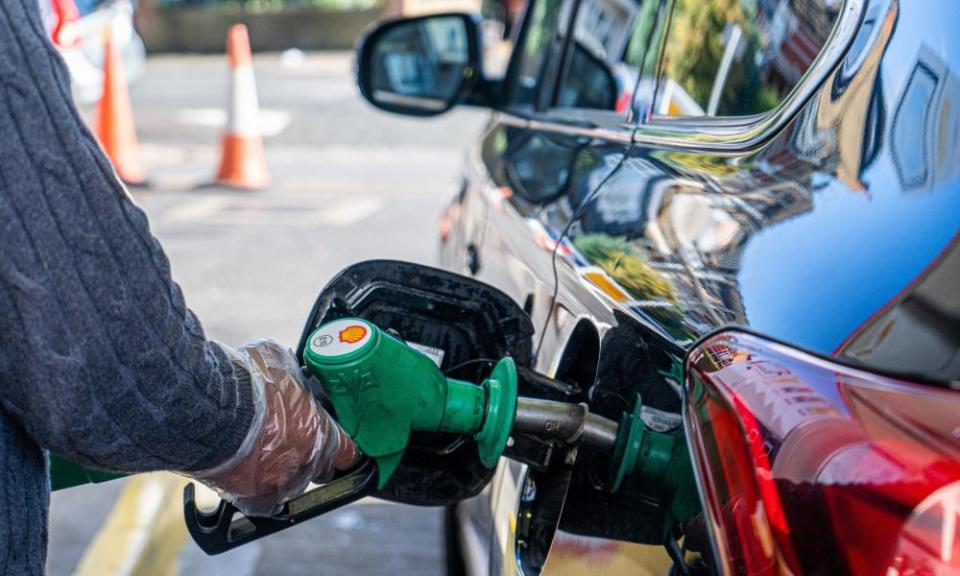Inflation hits 7% in March as Britain’s cost of living soars

Latest rise in CPI measure is the highest in three decades, coming a month after it hit 6.2%
Households in Britain have come under renewed pressure from the soaring cost of living after the official inflation rate reached 7% last month amid a record increase in petrol and diesel prices.
Figures from the Office for National Statistics showed the latest rise in the consumer prices index was the fastest in three decades, coming a month after the barometer for rising living costs jumped by 6.2% in February.
With broad-based price rises across the economy, the biggest increase came in the cost of filling up at the pump after Russia’s invasion of Ukraine sent the global oil price close to record levels amid concerns over supply disruption and sanctions.
Average petrol and diesel prices soared to record highs of 160.2p and 170.5p a litre respectively, rising by more than 30% over the past year – the biggest annual increase since 1989.
Restaurants and hotel prices also rose steeply in March, having fallen a year earlier during lockdown, while there were also rises across a number of different types of food as the cost of a weekly shop increases.
The ONS said inflation was last higher in March 1992 when CPI stood at 7.1%.
Highlighting the intensity of the squeeze on living costs last month, City economists had forecast a rate of 6.7%. Further increases are expected as the impact of the war in Ukraine drives up the cost of energy and raw materials, with households likely to feel the squeeze from higher gas and electricity bills.
The Bank of England has warned that inflation is on track to reach 8% this month and could peak close to 10% later this year, the highest rate in four decades.
According to the latest snapshot, rising costs for gas and electricity bills added to pressure on household living costs in March. However, families are expected to face a bigger squeeze this month after a 54% rise in the Ofgem energy price cap to reflect an increase in wholesale markets, where oil and gas prices quadrupled in the past year even before Russia’s invasion of Ukraine.
“The latest rise in inflation will not be the last,” said Alpesh Paleja, the lead economist at the CBI business lobby group. “The result will be even higher costs for businesses, and a deep squeeze in the cost of living for households.”
Official figures on Monday showed average pay growth failing to keep pace with the soaring cost of living. Jack Leslie, a senior economist at the Resolution Foundation, said the cost of living crisis was on track to be the biggest squeeze since the mid-1970s.
“The sheer scale of this inflation-led squeeze on living standards makes it all the more remarkable how little support the chancellor provided in his spring statement – a decision that will surely have to be revisited before the autumn budget.”
The chancellor, Rishi Sunak, blamed the rising costs on global pressures in supply chains and energy markets that could be made worse by Russian aggression in Ukraine.
“I know this is a worrying time for many families, which is why we are taking action to ease the burdens by providing support worth around £22bn in this financial year, including for the most vulnerable through our household support fund,” he said. “We’re also helping as many people as possible into work – the best way for families to gain economic security in the longer term.”

 Yahoo Finance
Yahoo Finance 